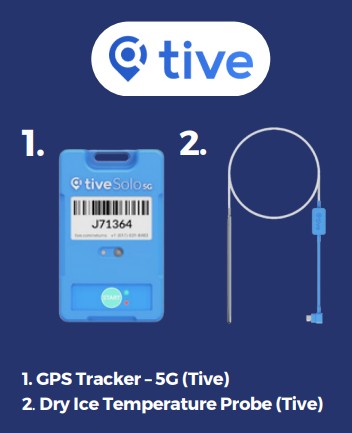How To Effectively Track Life Science Shipments
January 19, 2024Importance of Tracking Life Science Shipments
Written By: Narek Hakobyan
Life science shipments are among the world's most critical and sensitive shipments. They include biological specimens, clinical samples, pharmaceuticals, chemicals, and other materials that require strict temperature and handling conditions. These shipments are vital for medical research, diagnosis, and treatment. However, they also face many challenges and risks during transportation, such as delays, damage, theft, loss, and temperature deviations.
This blog post will show you how to track life science shipments effectively and why taking that extra step can be beneficial for your shipments safety and quality.
How to Effectively Track Shipments
One of the most effective ways to track life science shipments is to use GPS trackers. GPS trackers are small devices that can be attached to the shipment or the package and transmit the location, temperature, and other data to a cloud-based platform or a mobile app.
TIVE - 5G GPS
 An example of such a device is the Tive - 5G GPS and temperature probe. The device allows for real-time visibility over you shipment, while the probe is specifically designed to measure the temperature ranges within you dry ice shipment. It also comes equipped with shock sensors used to indicate damages.
An example of such a device is the Tive - 5G GPS and temperature probe. The device allows for real-time visibility over you shipment, while the probe is specifically designed to measure the temperature ranges within you dry ice shipment. It also comes equipped with shock sensors used to indicate damages.
Integrating the GPS tracker with the probe enables users to continuously monitor the temperature and location in real-time. This feature ensures optimal safety for cold chain shipments, making it particularly beneficial for life science shipments, especially those that fall under UN 3373 B regulation and clinical samples. The delicate nature of these temperature-sensitive shipments demands the highest level of precision and monitoring to maintain their quality and integrity throughout the transportation process.
Benefits
- Real-time Monitoring: GPS trackers provide real-time tracking capabilities, allowing life science organizations to monitor the location of shipments at any given moment. This ensures visibility throughout the entire supply chain, reducing the risk of delays or loss during transit.
- Temperature & Environment Monitoring: Life science shipments often require specific temperature and environmental conditions to maintain the integrity of sensitive materials. GPS trackers like TIVE equipped with sensors can monitor and alert stakeholders if there are deviations from the required conditions, helping you to take proactive measures to prevent damage or spoilage.
- Security & Anti-theft Measures: Trackers enhance the security of life science shipments by providing a means to trace and recover stolen or lost shipments. This is crucial for safeguarding valuable and sensitive materials, reducing the impact of theft on research projects or pharmaceutical distribution.
- Improved Compliance: GPS trackers can help the sender and the receiver to comply with the regulations and standards that apply to their shipments by providing proof of delivery, documentation, and audit trails.
Additional Resources